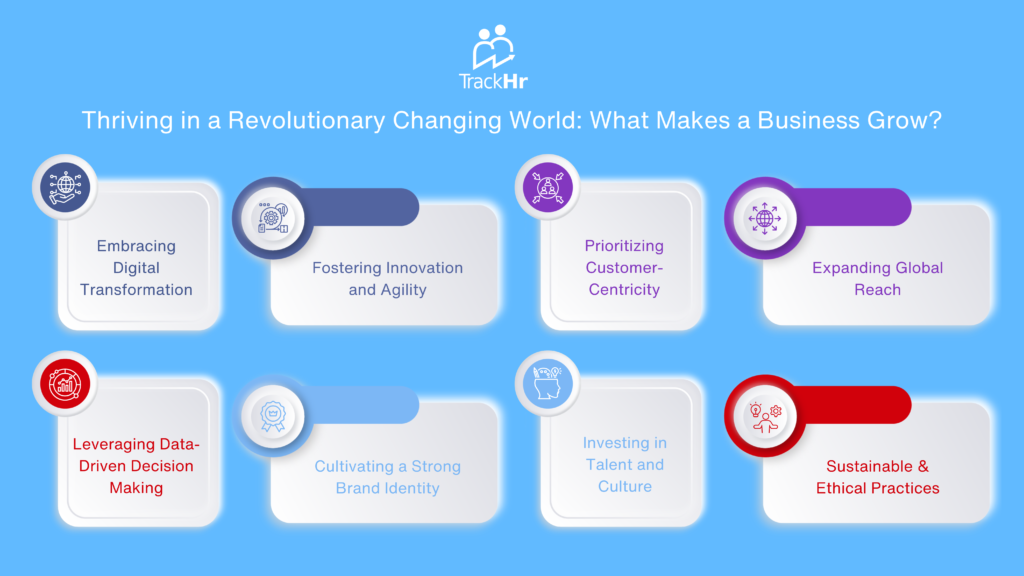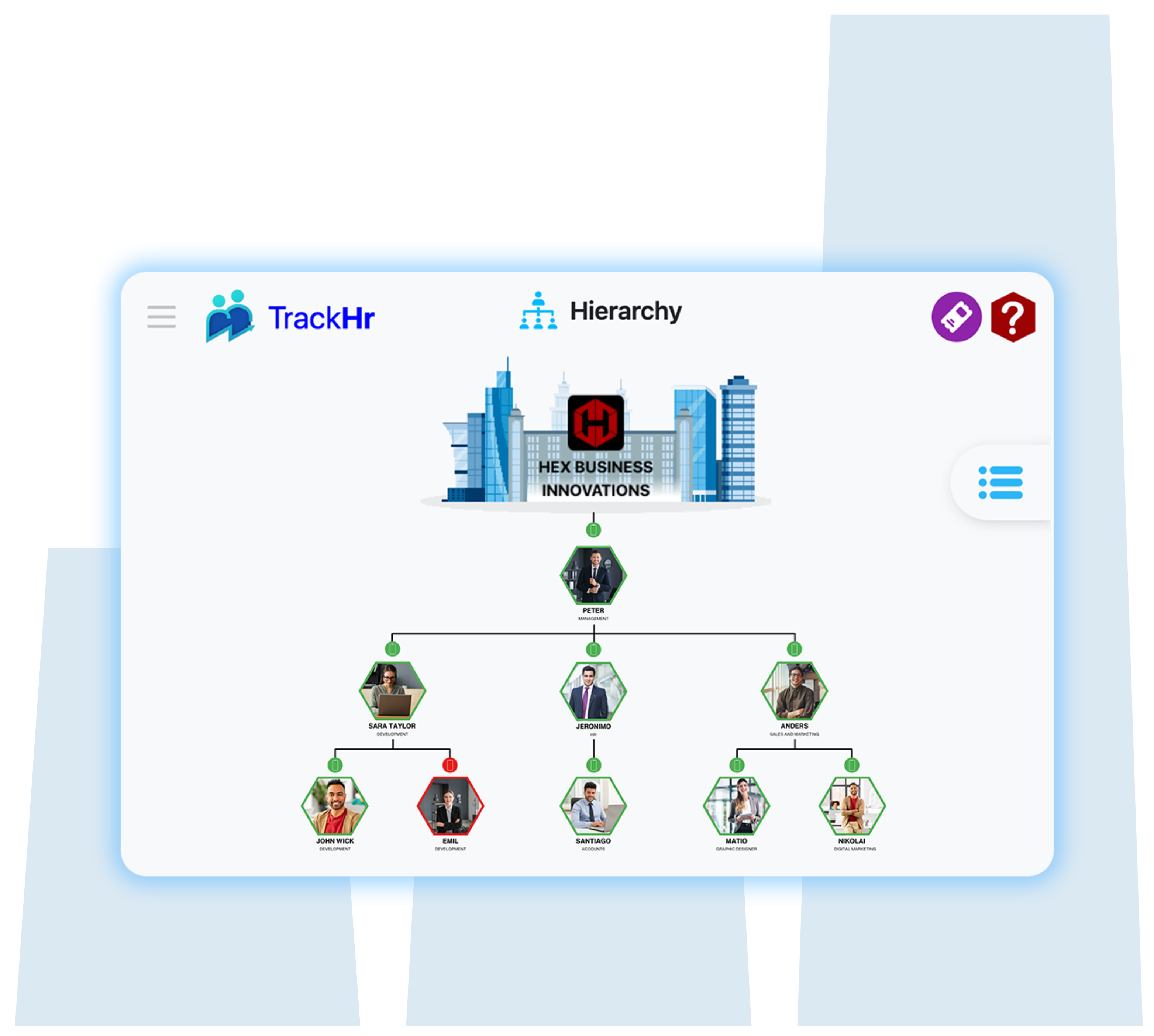Thursday, 27 Jun 2024
Thriving in a Revolutionary Changing World: What Makes a Business Grow?
In today’s fast-paced and ever-evolving landscape, businesses must navigate a multitude of challenges and opportunities to ensure sustained growth. The rapid advancements in technology, shifting consumer behaviors, and global interconnectedness demand that businesses adapt and innovate constantly. Here are the key factors that drive business growth in this revolutionary changing world.

1. Embracing Digital Transformation
The digital revolution is at the heart of business growth. Companies that harness the power of technology to streamline operations, enhance customer experiences, and create new business models are better positioned to thrive. This includes leveraging artificial intelligence, big data, cloud computing, and the Internet of Things (IoT) to optimize processes and deliver personalized services.
Example: Amazon’s use of AI for inventory management and personalized recommendations has been pivotal in maintaining its competitive edge.
2. Fostering Innovation and Agility
Innovation is the lifeblood of growth in a rapidly changing environment. Businesses need to foster a culture of creativity and experimentation, encouraging employees to think outside the box and develop new solutions. Additionally, agility—being able to quickly adapt to market changes and pivot strategies—is crucial for long-term success.
Example: Netflix’s transition from DVD rentals to streaming services exemplifies agility and innovation, allowing it to dominate the entertainment industry.
3. Prioritizing Customer-Centricity
Understanding and meeting the evolving needs of customers is paramount. Businesses that prioritize customer-centric strategies—through personalized experiences, excellent customer service, and continuous feedback loops—are more likely to build loyalty and drive growth.
Example: Apple’s focus on creating intuitive and aesthetically pleasing products has resulted in a devoted customer base and sustained market leadership.
4. Leveraging Data-Driven Decision Making
Data is a powerful asset for businesses seeking growth. By leveraging data analytics, companies can gain valuable insights into market trends, consumer behavior, and operational efficiencies. This enables informed decision-making and the ability to predict and respond to changes proactively.
Example: Starbucks uses data analytics to optimize store locations, customize marketing efforts, and improve customer experiences.
5. Cultivating a Strong Brand Identity
A strong brand identity sets a business apart from its competitors. Consistent branding that resonates with the target audience builds trust and recognition, which are crucial for long-term growth. This involves clear messaging, visual identity, and delivering on brand promises.
Example: Nike’s powerful branding and commitment to innovation and performance have solidified its position as a leader in the athletic apparel industry.
6. Investing in Talent and Culture
A business is only as strong as its people. Investing in talent development and fostering a positive, inclusive company culture are essential for attracting and retaining top talent. Happy and motivated employees are more productive, innovative, and committed to the company’s success.
Example: Google’s emphasis on employee well-being and continuous learning has made it one of the most desirable workplaces, driving its innovation and growth.
7. Expanding Global Reach
In a globally connected world, businesses must look beyond their local markets. Expanding into international markets can provide new growth opportunities and diversify revenue streams. This requires a deep understanding of cultural differences, regulatory environments, and market dynamics.
Example: Coca-Cola’s global expansion strategy has enabled it to become one of the most recognized and consumed brands worldwide.
8. Sustainable and Ethical Practices
Consumers and investors are increasingly prioritizing sustainability and ethical practices. Businesses that adopt environmentally friendly practices and operate with social responsibility not only contribute positively to society but also attract conscious consumers and investors.
Example: Patagonia’s commitment to environmental sustainability and ethical manufacturing has earned it a loyal customer base and strong brand reputation.
Conclusion
In this revolutionary changing world, businesses must embrace digital transformation, foster innovation, prioritize customer-centricity, leverage data, cultivate a strong brand, invest in talent, expand globally, and adopt sustainable practices. By doing so, they can navigate the complexities of the modern landscape and achieve sustained growth. Adaptability, resilience, and a forward-thinking approach are the cornerstones of thriving in today’s dynamic business environment.



